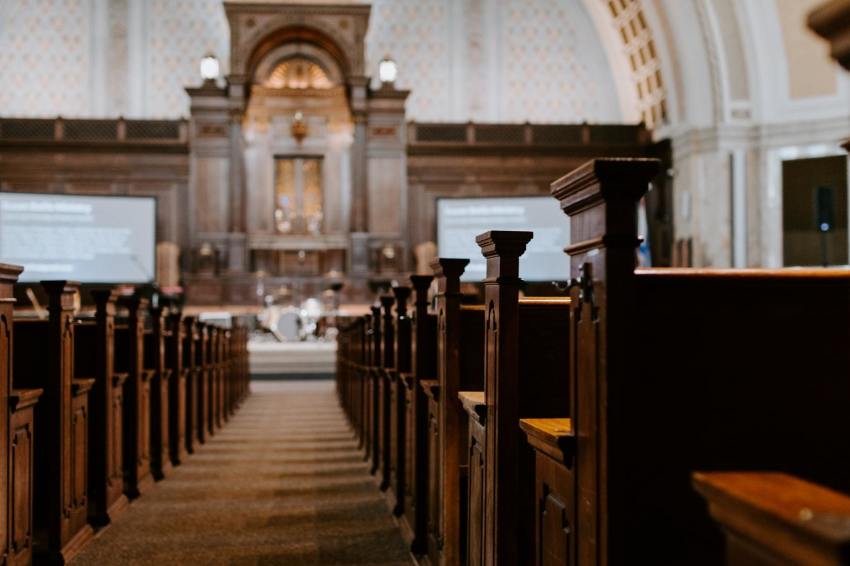Christian groups sue NC Gov. Cooper over restrictions on indoor worship services

Two congregations, a pastor and a conservative Christian group are suing North Carolina Gov. Roy Cooper for a broader exemption to a state order banning indoor gatherings of more than 10 people.
Berean Baptist Church of Winston-Salem and People’s Baptist Church in Greenville joined the Christian conservative mobilization network Return America in filing a complaint Thursday with the U.S. District Court for the Eastern District of North Carolina.
The Christian groups are seeking injunctive relief from state executive orders aimed at combatting the spread of the coronavirus by limiting mass gatherings, including church services.
The congregations have been unable to hold in-person, indoor worship services since the governor first signed the orders.
According to the complaint, Cooper’s orders are “unconstitutional both facially and as applied to Plaintiffs.”
“Governor Cooper’s Orders have been interpreted, applied, and enforced by his Office and local law enforcement authorities as prohibiting indoor gatherings for religious worship by more than 10 people,” the lawsuit reads.
“The Orders are not neutral laws of general applicability because they target Constitutionally protected activity, significantly burdening the Plaintiffs’ right to freedom of religion and assembly, establishing an orthodox form of religious exercise approved by the State, all the while providing broad exemptions for many other gatherings of more than 10 people that are not constitutionally protected.”
Return America, a coalition of religious leaders and educators headed by Berean Baptist Pastor Ronnie Baity, held a rally in downtown Raleigh outside of the state’s legislative building on Thursday to announce the lawsuit and demand that the restrictions be lifted.
According to The Associated Press, the rally was attended by about 500 people.
“Freedoms curbed eventually becomes no freedom at all,” Baity was quoted as saying. ”If there’s ever been a time our communities need the church, it is now.”
Earlier this month, Cooper signed Executive Order 138 announcing the launch of “phase one” of the government’s plan to gradually reopen the state.
According to a statement by the governor’s office, the phase-one order has no limit on attendance for worship services as long as they are held outdoors and follow proper social distancing guidelines “as much as possible.”
“Indoor worship services and weddings are allowed for gatherings of 10 people or fewer in the same confined space,” the statement adds.
“However, nothing prevents an indoor worship service from being shifted to multiple services over a period of time, or held in different rooms, to meet the requirements of the Phase One Order.”
The governor's office also noted that the limit on attendees can be lifted for a religious gathering in which “it is not possible to conduct worship services outdoors or through other accommodations.”
“There may be situations in which particular religious beliefs dictate that some or all of a religious service must be held indoors and that more than 10 people must be in attendance,” the statement from the governor’s office explains.
Baity told WRAL that the lawsuit centers around the concern that churchgoers’ "First Amendment rights have been squandered.” Representing those plaintiffs in the lawsuit is lawyer and pastor David Gibbs, Jr. of the Christian Law Association.
"We have the ability to open our churches safely, with higher standards than they are asking us to do," Gibbs explained.
Cooper has defended the state's restrictions on indoor worship, explaining that "we don't want our churches to become hotspots for the virus."
“When people are gathered together indoor, the virus has a significant chance to spread from one person to the next,” Cooper said in a press conference this week.
“We’ve seen tragic consequences when that’s the case. We hope congregations all across North Carolina will make good decisions about what is right to look after each other.”
Churches will be allowed to hold indoor services as part of the second phase of the state’s reopening plan. Phase one is slated to expire on May 22. Under the second phase, churches will still need to limit their capacity for services.



























